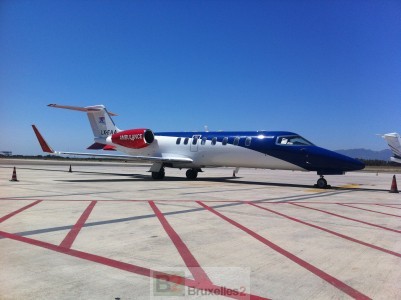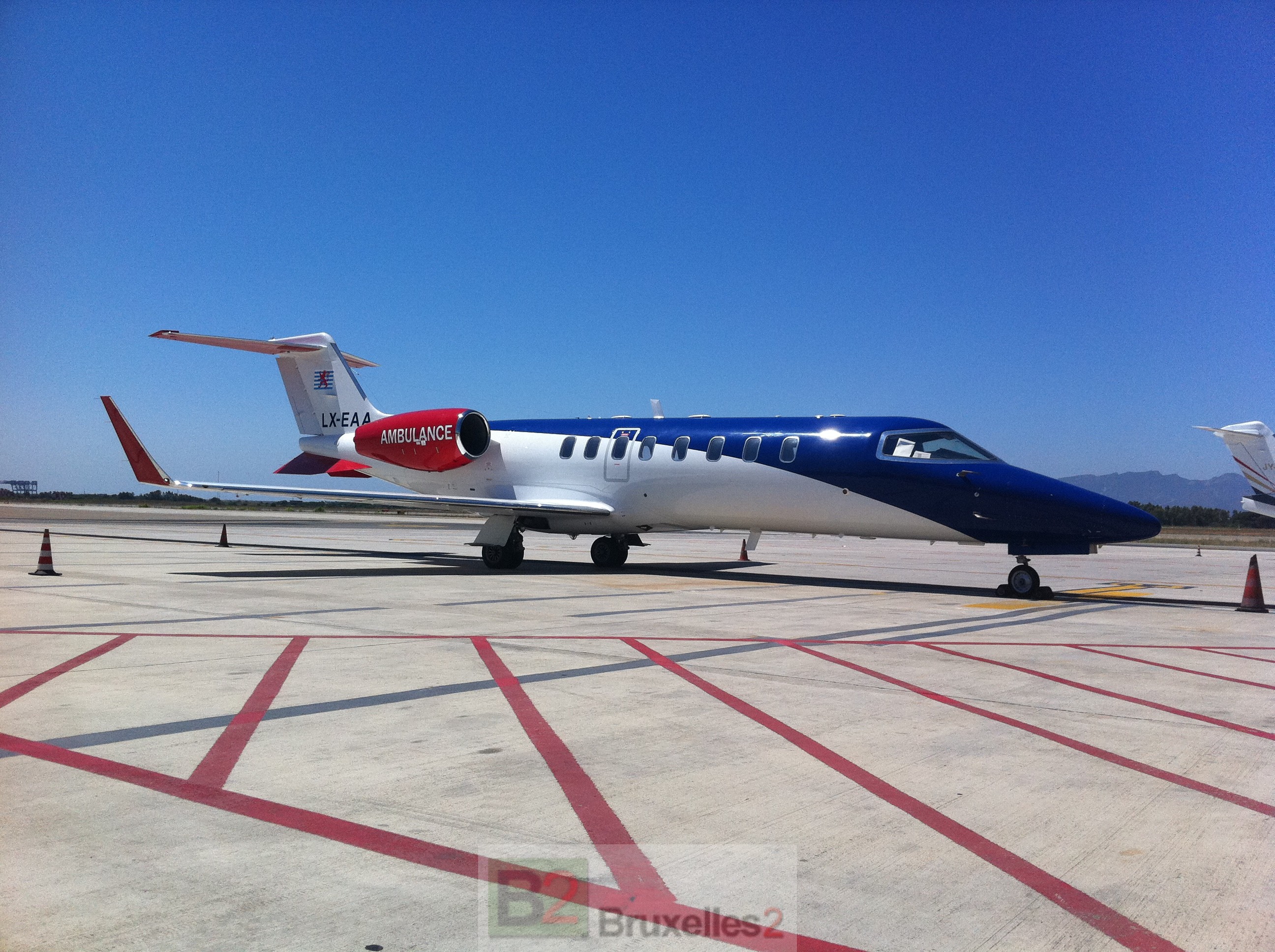2 Luxembourg planes ready for evacuation for Ebola

(BRUSSELS2) In the midst of the Luxleaks affair – which sees the Grand Duchy indicted for having attracted tax advantages from multinational companies with force – the information went relatively unnoticed. And yet it is not negligible. Two Luxembourg planes will be operational within a few weeks to repatriate health personnel or other employees of NGOs or international organizations who are victims of Ebola on European territory. A condition sine qua put by NGOs and international organizations to send personnel to the region. This capacity will make it possible to complete and take over from American aircraft under contract with the European Commission (*).
Specific equipment
The two ambulance planes, Learjet 45XRs, are provided by AirRescue, a Luxembourg company specializing in the assistance and repatriation of victims of accidents or illnesses. They will be equipped and equipped with a specific module to ensure the evacuation of contagious patients. They are based at Findel airport - Luxembourg and available 24 hours a day. It is the crisis center of the EU, in Brussels, which will serve as a platform for triggering the planes. These must be ready to leave within 24 hours. In fact, only one plane is available 12 hours a day, the other serving as a reserve in case of problems.
A first European provision, "all over the place"
Luxembourg is thus the first EU country to offer an all-out evacuation capability. Luxembourg planes will be able to pick up on the spot, in the African countries concerned, any person, whatever their nationality, to repatriate them to one of the European reference hospitals, by decision of the European emergency center .
250 reference beds
The European Commission's DG Health has thus identified 250 beds - throughout Europe - that can accommodate Ebola patients, some hospitals only take nationals, however, others are more open. The only reservation to this all-out availability: Luxembourgers or staff employed by an NGO or under contract with a Luxembourg organization will have priority.
Availability from mid-December
These two planes will be ready from mid-December to transport stage 1 patients (suspicious signs) and at the beginning of January stage 2 to 3 patients (more serious signs). Planes will not normally take patients in stage 4 (final phase with vomiting) but will be equipped if the patient goes from stage 3 to 4 during transport.
Contract duration: 2 years
This availability is normally scheduled for a period of 2 years with a maximum of 48 flights (i.e. 24 on average annually). The company has undertaken to be able to make a maximum of one flight every 6 days (the time for the outward and return journey, patient care, and disinfection of the aircraft afterwards).
Financing of the operation
The cost of updating the aircraft will be covered by the European Union under the funding "Ebola". Also a part transportation will be co-financed by European funds (up to 85 % of costs as reimbursement). The remainder being the responsibility of Luxembourg. However, the latter reserves the right to request reimbursement of this balance from the State or the organization concerned.
(NGV)
(*) Planes which are also used for other entities and therefore cannot be available 24 hours a day.
